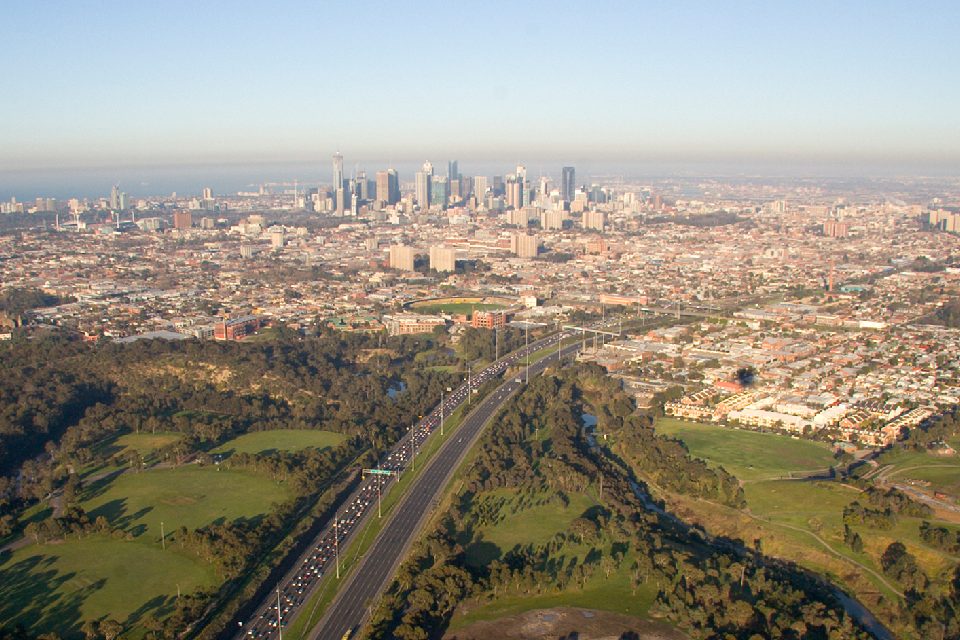Make a lasting impact by building communities and cities that will support the next generation. Giving you a deep understanding of current environmental challenges providing you with the knowledge and skills to respond to them.

Our discipline brings together studies of sustainability and urban planning, recognising the policy and practice issues that are vital to our future. How we live in and make decisions about our environment, including our cities, is central to our teaching and research, reflected in the focus of RMIT’s Centre for Urban Research where our staff are active leaders in cutting edge research in fields including urban greening and bio-diversity, healthy cities, transport planning and housing policy.
We work with partners in industry and with communities in Australia and internationally to bring innovative research into teaching and wider community debates. Our coursework programs are accredited and deliver job-ready graduates to growing sectors engaged in shaping sustainable communities and places.
Research
The Sustainability and Urban Planning discipline undertakes its research through the RMIT Centre for Urban Research where we work with Industry partners to address critical issues in contemporary cities in Australia and Internationally.
Our research focus areas include urban sustainability, housing, transport, nature and urban greening and city and regional governance. Our academic team are active in supervising research students in a range of areas relating to environment, sustainability and urban policy.
Industry


We work with a range of industry partners in research, teaching and by engaging in critical debates in contemporary urban sustainability. Our key industry partners include our accrediting bodies, the Environment Institute of Australia and New Zealand and the Planning Institute of Australia.
We also work with partners in government, private industry and the not-for-profit sector who support our student placements and graduate opportunities, and provide mentoring and teaching with us.
Our Environment and Society degree is accredited by the EIANZ and offers undergraduate students a chance to explore a range of contemporary issues in environment and sustainability policy and practice. Students have the option to take this as a double degree with the Bachelor of Environmental Science. Both programs have a strong emphasis on industry links and project-based experience.
The Bachelor of Urban and Regional Planning and Master of Urban Planning and Environment are each accredited by the Planning Institute of Australia. Students engage with the global and local issues affecting our cities and their environments; transport, housing and urban liveability amongst others.
Students get a chance to develop their own focus within this broad area through electives and research projects. The Bachelors degree program includes a work placement with a public or private sector employer, and this option is open to Masters students.
Contact
Visit us
Address: 360 Swanston Street, Melbourne, VIC 3000
Location: Melbourne City Campus, Building 8, Level 10
Hours: Monday to Friday: 9am–5pm
Phone: +61 3 9925 2328
Email address: guss.reception@rmit.edu.au
Postal address
School of Global, Urban and Social Studies
GPO Box 2476
Melbourne, Victoria - 3001
Current student enquiries
Phone: Call +61 3 9925 5000 and select the option to 'Speak to your School' then 'College of Design and Social Context'.
Operating hours: 9am-5pm Mon-Thurs, 10am-5pm Friday excluding public holidays.
Research
Centre for Urban Research: cur@rmit.edu.au
Social Equity Research Centre: serc@rmit.edu.au
People
The School of Global, Urban and Social Studies is led by a team of professionals with knowledge and experience across their fields, including sustainability, language studies, justice, and social work, and more.